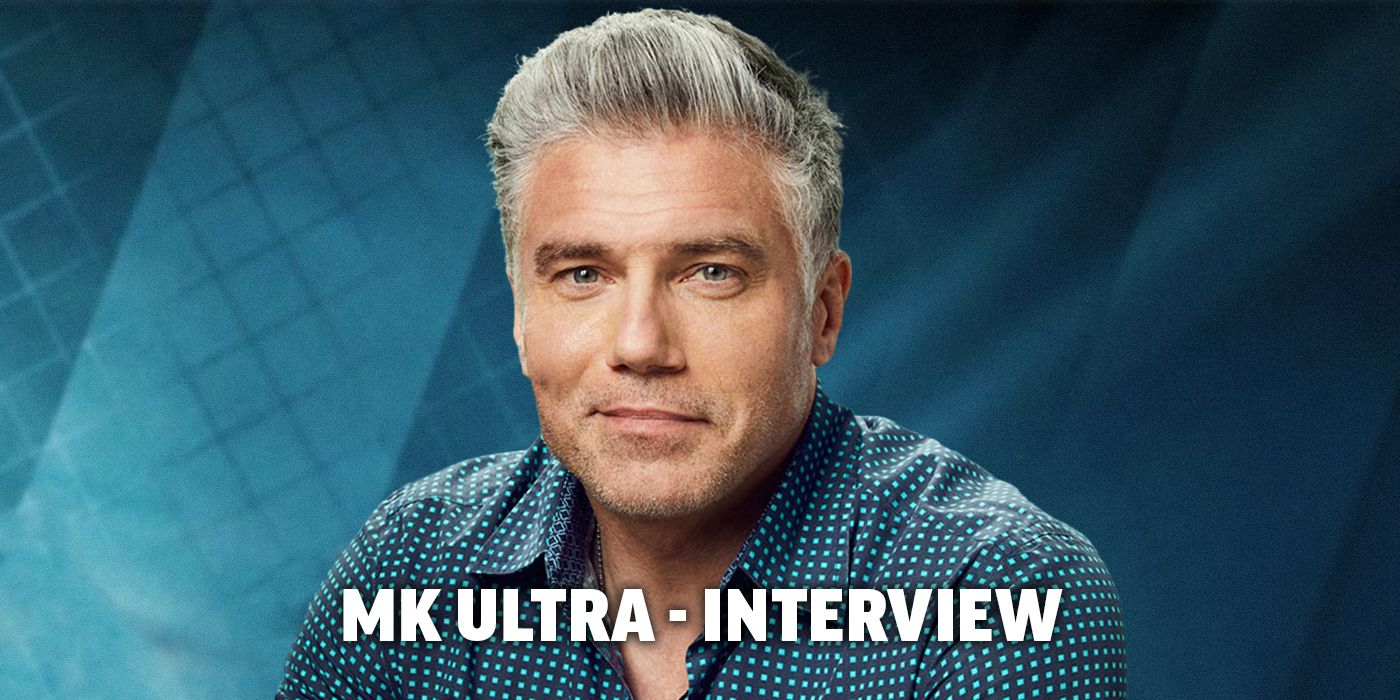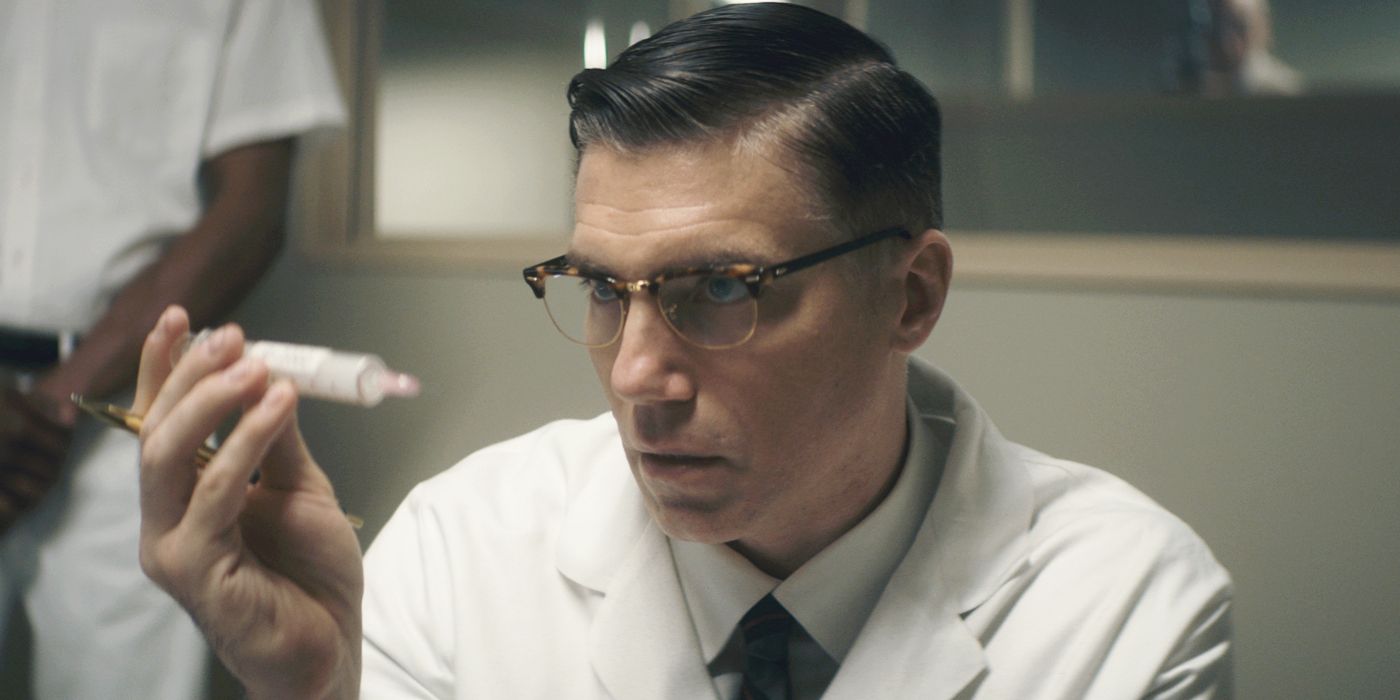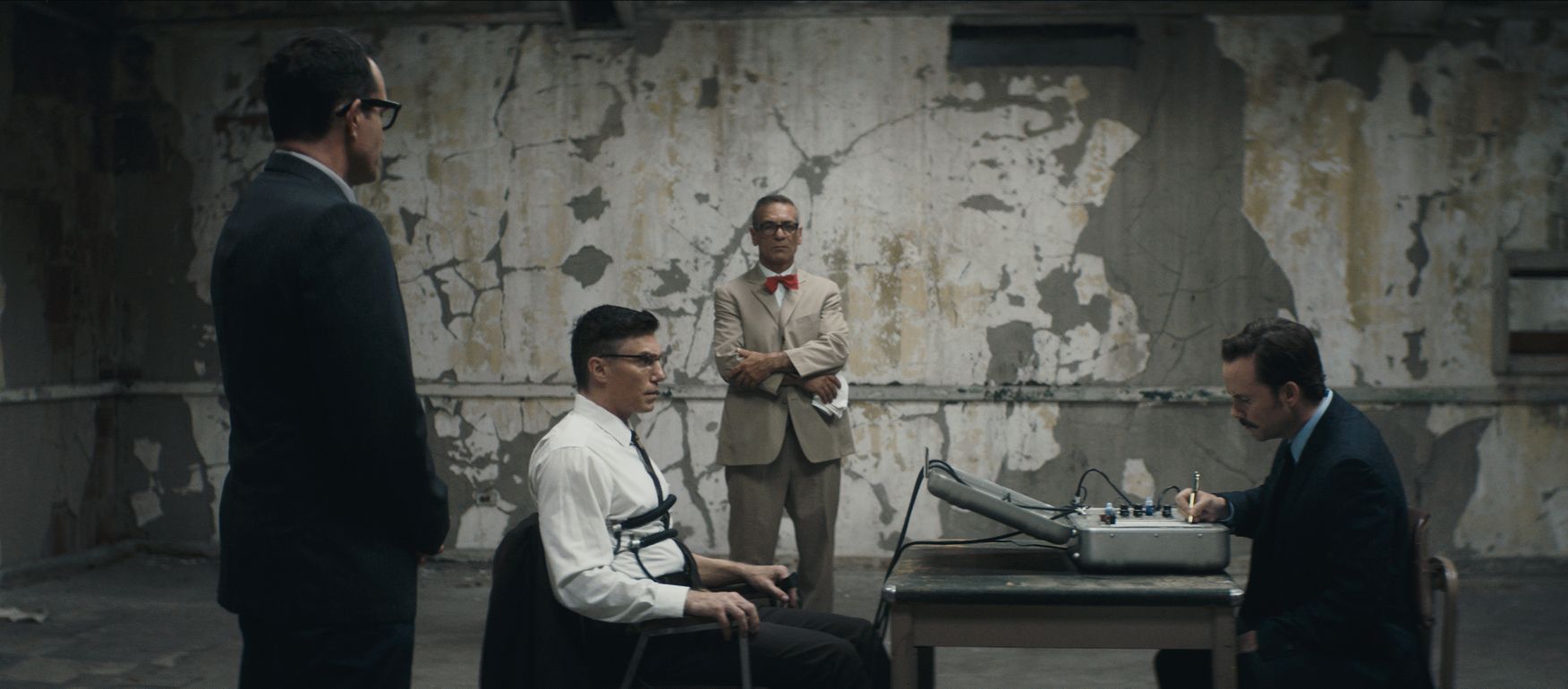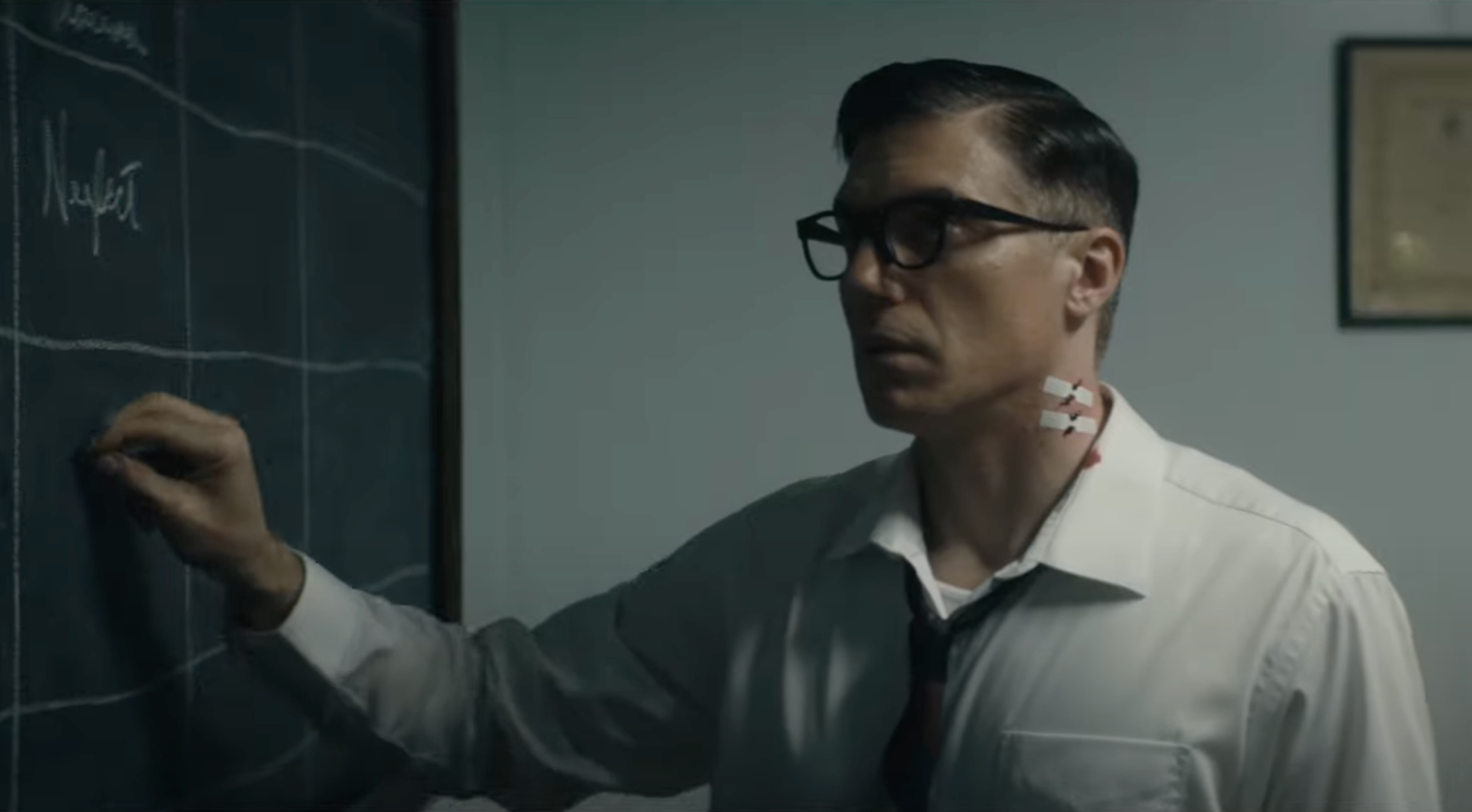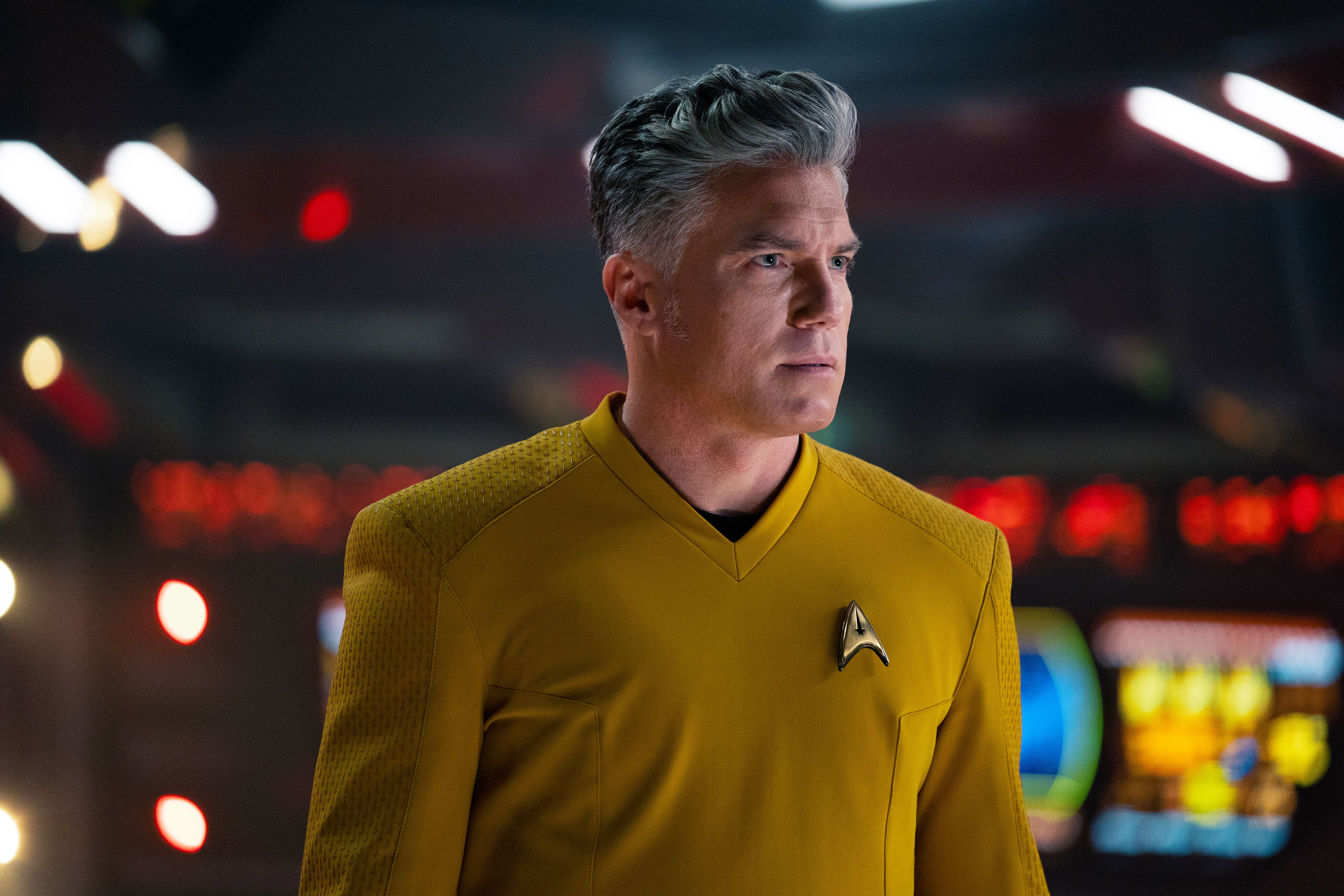Written and directed by ex-Intelligence Officer Joseph Sorrentino and based on the CIA drug experiments from the early 1960s, the psychological thriller MK Ultra follows psychiatrist Ford Strauss (Anson Mount), as he unknowingly becomes a pawn for the government’s fixation on mind control. As a man who truly cares for his patients and wants to help them, the moral and scientific boundaries he’s forced to push past lead to dangerous consequences.
During this 1-on-1 interview with Collider, Mount talked about following a sense of play and mischief in his work, why this script grabbed him, his experience collaborating with Sorrentino, what he wanted to bring to this character, more deeply exploring this real-life story, and what it was like to shoot the more intimate scene in the film. He also talked about the path his career has taken, how Season 2 of Star Trek: Strange New Worlds will compare to Season 1, and what it’s been like to get to play Captain Pike.
Collider: You always play such interesting characters. I never quite know what to expect from watching something that you do, which is really fun, as a viewer.
ANSON MOUNT: Yeah. Well, that’s good to hear because that’s what I’ve tried to do. I just follow my sense of play and my sense of mischief, and that tends to lead me down newer paths.
Typically, an actor signs on for something because they’re either interested in or they connect with something in the story, they want to play the character because it’s different from what they’ve done, or they want to work with the filmmaker, and sometimes it’s all of those things combined. What was it about this project that got you interested?
MOUNT: The script grabbed me. I didn’t know (writer/director) Joseph [Sorrentino] at all, but I really responded to the material. Something that I strive for in my own work is material that is smart enough to know exactly how much information to give the audience, and more importantly, how much information to not give to the audience. It was very smart writing, but you could also tell that the writer was speaking with confidence and from a place of authority. I asked to meet with Joseph, but it wasn’t until I met him that I realized that his background was in intelligence, and then it all clicked. Clearly, he’s also a very good writer and the dialogue was strong. I responded to it. It was very clear in the script that it was a story about a person who has always negotiated the world cerebrally, making a choice that then sends him down a path where logic has no purchase, and a very physical world, and how he works his way through that, as a repercussion of the decisions he’s made.
The relationship between actor and director must play a large role in something like this because you’re in pretty much every scene, so it really is about that filmmaker’s vision.
MOUNT: Yeah, and we didn’t always agree on everything, but we got through it. It’s a very hard wall to bump up against. You can understand, conceptually, that you write one movie, you shoot a different movie, and then you cut together a third movie. That’s something that I’ve lived and worked with for a very long time. As a filmmaker, when it’s your baby, that can be a very difficult reality to bump up against. Joe took the hits, and he really adapted, as I would suspect any career military veteran would. That’s partly why I did the movie.
Like is often the case of independent films, you shot this a while ago, and it’s only just now available to audiences. How do you feel about that? Is it weird that it can take such a long time to get a project out in front of audiences, or does that also feel like part of the industry that you’ve had to get used to?
MOUNT: Well, that’s really why I try to be careful about where I get myself involved, as a producer. I was not a producer on this, so I was able to just do it. As an actor in this business, you have to make peace with doing the work for the sake of the work, and then you send it off into the world, and occasionally you get blessed with a response, but occasionally you don’t. You have to get good at living in the present, and leaving the work behind and moving on to the next thing. I’m very glad that this is getting some attention because I think it’s well-deserved, especially for Joe.
For an actor, it really is just the experience you have on set and with the people you work with, but you can’t control anything other than your performance.
MOUNT: Especially now, when there’s just so much competition for eyeballs, not just from other movies and with streaming, but with video games, with the state of politics, and with the way we live our lives now. It’s really hard to get people’s attention.
This is a very dry character, meaning that he’s focused on his work. He’s not somebody who really veers off of that. He’s not a guy that’s telling jokes, or going around being funny with people. Was all of that on the page? Is that who he was in the script, or is that what you wanted to bring to him?
MOUNT: He’s a stranger in a strange land. There’s a reason that the movie is set in the South. It wasn’t just for tax incentives. He needed to be a fish out of water, and he needed to have very few things to hold onto. Where we take the movie, there needed to be a limited number of safety mechanisms. As a Southerner playing a Northerner, being in the Old South for the first time, was very interesting. You hit the nail on the head. That’s one of the things I wanted to do, is to not try to charm my way through this, because he would’ve already figured out that doesn’t work and that the senses of humor are completely different.
Is the real-life component of this something that you knew anything about? Did you do any research into this? It seems like you could easily dive down a rabbit hole that you can’t ever get back out of, with research like this.
MOUNT: Very limited. I never read any books on it. I was familiar with the Errol Morris documentary, and I’d heard about it through the grapevine for years. It was something that interested me. It’s a story I feel has never been fully told. This is a very contained, personalized look into the subject matter. They say that with great power comes great responsibility, and I feel like our federal government has been very good about the consistent cultivation of power. We have not been so consistent about figuring out our responsibilities. This is one of those instances where you can see that lack of care for the individual played out in a domestic situation. I don’t mean a home situation, I mean domestically, nationally. It’s the same with the Tuskegee Experiments. Our nation does have a history of turning a blind eye to the individual, and that was another aspect of it that I thought was interesting.
I thought it was also so interesting to have the scene, toward the beginning of the film, where your character is bound and gagged. It’s something that he’s clearly done with his wife before. Did you have any conversations about why that seemed to be something that worked for him, along with how to shoot that? I thought that was such an interesting moment, with the way this guy presents himself in every other moment.
MOUNT: We definitely had discussions about it, at the time. What I liked about it is that it came out of nowhere and revealed an aspect of both characters that we had not been aware of, that fills in some holes very nicely and neatly. It also helps to further paint the picture of someone who sees himself as more enlightened than the culture that’s around him. He smokes pot. Other than his wife being his friend and counselor, he’s in this world alone. We get a sense that this is a seriously foreign individual in this world.
I would have liked to have seen even more in the relationship between the two of them. There’s such an interesting contrast between his professional and his personal life.
MOUNT: Yeah. A lot of that is due to Jamie [Ray Newman] coming in and really having a lot of input into how to develop that relationship.
These days, it seems like people are so quick to jump into conspiracy theories, especially if it reinforces anything that they might doubt or wonder about. It’s so interesting that this film takes that idea one step further and, this is not a conspiracy theory, but this was an actual program going on. How do you feel about the fact that people jump down these conspiracy theory rabbit holes, and yet there are actual awful things going on that people don’t seem to pay any attention to?
MOUNT: Yeah, there was a part of me that wanted to put a disclaimer on that thing I said about our federal government earlier, to make it clear that I’m not a conspiracy theorist. I believe Joe Biden won the presidency. We certainly haven’t done ourselves any favors to engender trust from the individual in this country. I do think that those kinds of wild-eyed theories didn’t just come out of nowhere. Not to say that they’re based in any fact, but they’re driven by a deep paranoia of the cog in the machine.
The first time I remember seeing you in something was Crossroads, and I even did that press junket. I’ve seen a lot of your work since then, and you’ve been all over the map with the type of roles that you do, the different genres you’ve worked in, and the projects that you’ve done, and you always do really interesting character work. Are you surprised, at all, by the direction your career has taken, between Hell on Wheels, being in the MCU, and being a part of Star Trek. If you had been asked, back at the Crossroads junket, what you hoped your career would evolve into, would it have been anything like this?
MOUNT: Oh, no. But I was a different person. I was a much more solipsistic, self-involved, fragile ego-ed young man who desperately wanted to win awards, right? Now, that stuff doesn’t really resonate with me. I like telling good stories, in whatever medium I’m offered. It doesn’t surprise me. Yes, every day that I’m on the set of Star Trek, I’m looking around going, “I can’t believe I’m on fuckin’ Star Trek.” At the same time, it doesn’t surprise me because I’m not saying that I take everything I’m offered, but generally, understanding that we, as freelance artists, cannot afford not to at least somewhat consistently walk through the open door, and you have no choice over what that open door is going to be sometimes. Go look at my IMDB page and that you’ll see that is proof positive.
People, including myself, have loved you as Captain Pike, and people, including myself, are also loving Strange New Worlds. Without any spoilers for anything that would get either of us in trouble, how would you say Season 2 will compare to Season 1?
MOUNT: It’s like Christopher Guest in Spinal Tap, discovering that these knobs all go up to 11. Akiva [Goldsman] and Henry [Alonso Myers], our two showrunners, are so courageous. I really am not a conservative storyteller, at all. I am all for saying, “Fuck tradition, let’s do it our own way.” But I’ve even found myself going, “Really? Can we really do this?” Their mantra is that Star Trek can be a lot of things. Star Trek isn’t Star Trek because there’s no such thing. Star Trek can be a lot of things because Star Trek, as the best TV does, operates as a metaphorical platform, and when you jump into that wholly, you can really find a lot more elbow room than you think, including playing with not just story, but genre. If you thought we took some big swings in Season 1, and we did in a lot of different ways, we’re going for the rafters in Season 2.
I love that. After first playing Captain Pike on Discovery, did you have any clue that phone call was coming, to continue playing the character on his own show? Had you ever heard talk of that happening, prior to actually finding out that would be happening?
MOUNT: No, but it made it so much sense. I didn’t even realize what role I was auditioning for, initially. To back all the way up, I had been talking to Nina Jacobson about this, when it was still in development, and they ended up hiring Jason Isaacs for the captain in the first season. When the second season rolled around, they said, “Hey, what about this captain, and would you put yourself on tape?” It was somebody like Captain Parker, or something. And then, the next day, they said, “Okay, look, we wanna do this, and by the way, it’s Captain Pike.”
I was like, “Oh, my fucking God!” I knew exactly what that meant, but I didn’t know that it meant there was going to be my own show. I just knew that it was an incredible canonical role. There were no other plans in the works. But even during the development of Season 1, Akiva had been nudging Alex [Kurtzman] into conversations about how there should be a Pike show. This is them saying, “Well, let’s see how a Pike would work in this show.” Then, they continued talking about it. It wasn’t even until we finished shooting the entire season that Alex did a soft pitch to the network and got a green light, and then called me.
And then, the fans really loved you in the role and wanted to see more. It must be really nice to have something happen, in that way.
MOUNT: Right. When I was teaching, I’d tell my students this to just calm them down. I’d say, “There’s never been a better time to be an actor.” The amount of material that’s being generated is exponentially more than anything we’ve ever seen. I do thank my lucky stars that I’m an actor right now.
MK Ultra is now playing in theaters and is available on demand. Watch the trailer below:

